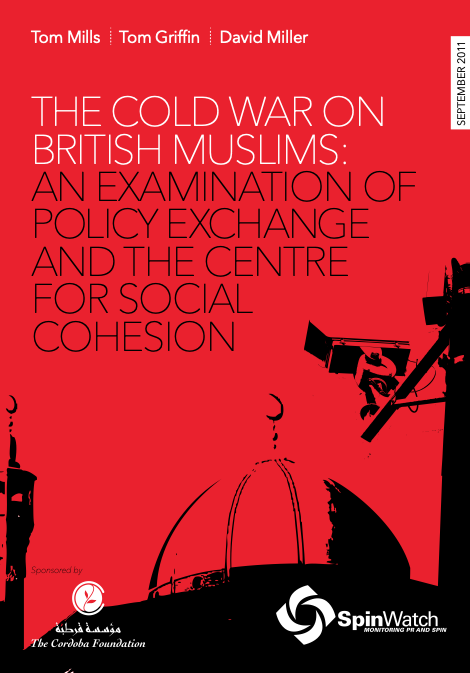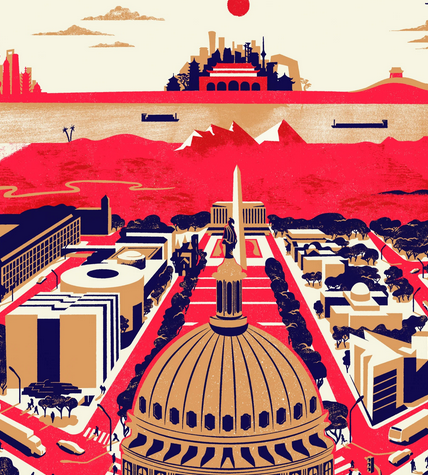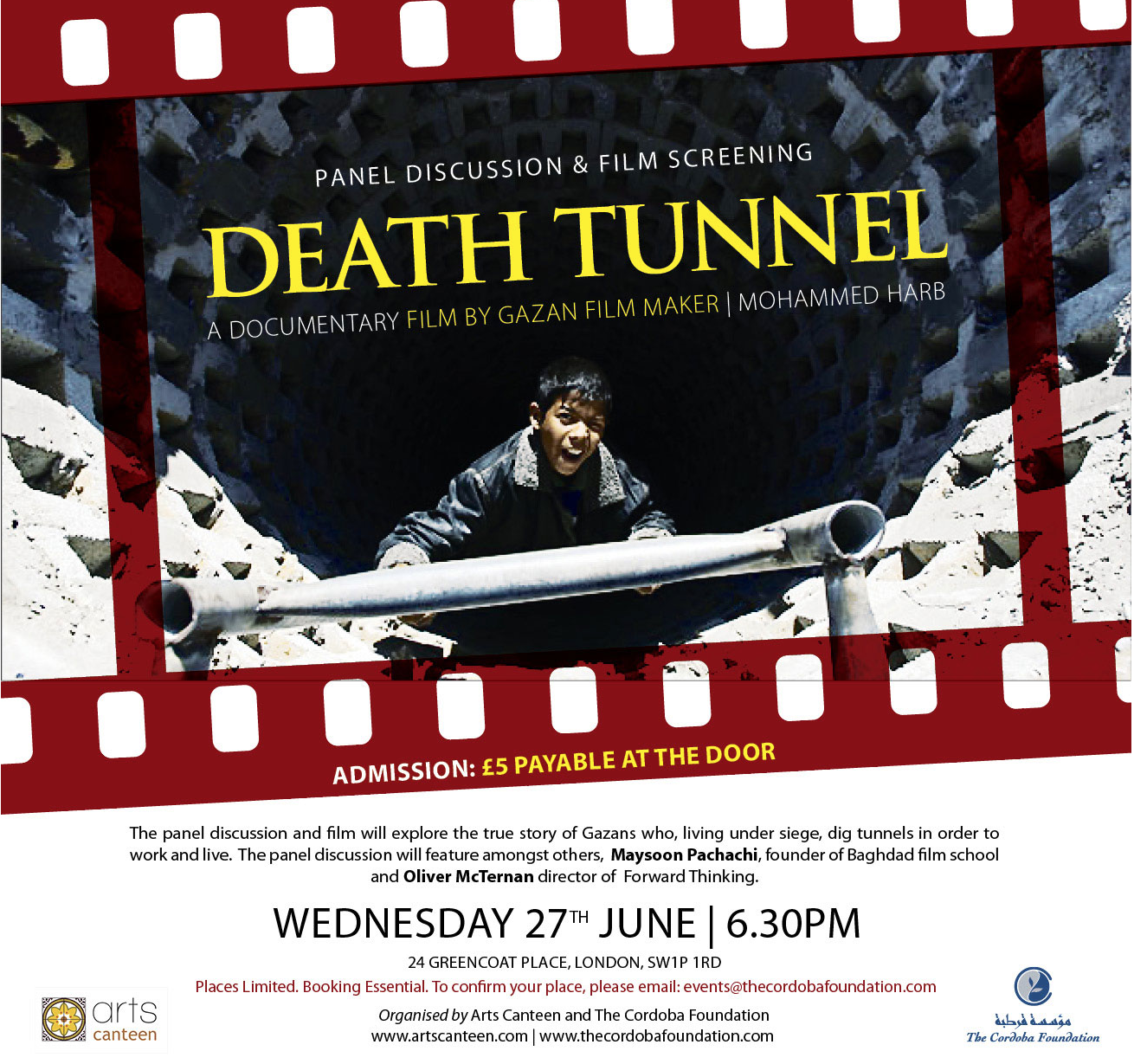Jun 27, 2012 | Events
With the drawdown of US combat troops from Afghanistan after July 2011 and the planned transition of security to Afghan command by the end of 2014, what are the key priorities for US policy in Afghanistan and Pakistan?
The White House annual policy review last December said that: ‘The core goal of the US strategy in the Afghanistan and Pakistan theatre remains to disrupt, dismantle, and eventually defeat al-Qaeda in the region and to prevent its return.’ This built upon US President Barack Obama’s West Point speech a year before in which he said: ‘Our security is at stake in Afghanistan and Pakistan. This is the epicentre of violent extremism practiced by al-Qaeda.’
To achieve its goals, what form will US military and civilian engagement in Afghanistan take in the future? To what extent will the US support attempts at reconciliation between the Afghan government and the Taliban leadership?
Prof Vali Nasr is Senior Advisor to the Special Representative for Afghanistan and Pakistan at the US State Department. He is Professor of International Politics at the Fletcher School of Law and Diplomacy, Tufts University. From 2003-07 he was Professor and Chair of Research, Department of National Security Affairs at the US Naval Postgraduate School, Monterey and from 2007-09, Adjunct Senior Fellow at the Council on Foreign Relations.
He has authored six books on political Islam, including, most recently, Meccanomics: The Rise of the New Muslim Middle Class and What it will do for our World.
This event will be chaired by Adam Ward, Director of Studies, IISS.
This is a joint event between the IISS and The Cordoba Foundation
If you would like further information please contact Charlotte Laycock at events@iiss.org
Jun 27, 2012 | Events
The Cordoba Foundation has been invited to a roundtable discussion with the Malaysian Prime Minister on ‘Modernity and Islam: The
Role of British Muslims in the Global Framework’
Venue: The Dorchester Hotel, London
For more information, please click here
Jun 27, 2012 | Events
Do cosmopolitanism and religion stand in opposition with each other? To which extent are cosmopolitan ideas, practices and narratives meaningful to the religious experiences and affiliations of concrete individuals and groups? To which extent have religious communities made use of cosmopolitanism as a cultural resource that is channelled by institutional structures? Which media platforms are available to religious organizations and movements concerned with the promotion of cosmopolitan solidarity and ecumenical understanding at both local and transnational level?
Cosmopolitanism gains momentum both as a practice that is apparent in things that people do and say to positively engage with the ‘otherness of the other’, and as a moral ideal that emphasises both tolerance towards difference and the possibility of a more just world order. Religion is not often seen in connection to cosmopolitanism, a notion that is commonly equated to worldliness and secularism. In fact, some religious affiliations and practices are understood as bound to parochialism, tradition, and lack of tolerance. In the media, the debate on religion is often tied to public discourses about terrorism, security and freedom of expression and opinion in the public sphere. This is particularly significant when we consider the way in which Islam is publicly perceived in the western world as a highly institutionalized religion with a strong influence on the conduct of and collective identity of Muslim communities. The growing visibility of Muslim identity in the public sphere, through particular forms of attire, behaviour, and symbols, is seen as potentially fuelling xenophobia and ethnic conflict in collective imaginaries across the Western world. The continuing controversy over the public use of the headscarf in France, the 2005 affair over the publication of the Danish cartoons of the Prophet Muhammad, and the 2009 Swiss vote to ban new mosque minarets, are only a few recent examples of how particular religious symbols and practices make the assertion of Muslim identity more visible in the public sphere. The fact that fundamentalist Islam is being increasingly tied to global terrorism in the mass media has played a key role on stirring the perception of fundamentalist Islam as a threat to individual freedoms and peace. While there is a growing interest in the meanings of religion and secularism in both media and scholarly debates, the linkages between cosmopolitanism and religion only very recently received the attention of sociologists, anthropologists, political scientists and religious scholars concerned with the role of religion in public life. This is in part because particularistic attachments to a community of faith sit uneasily with the ethical universalism and secular ideals of justice and equality that underpin cosmopolitan discourses and perspectives. Yet, while religions divide social groups and ethnic communities, religions can also offer influential forms of transnational, cosmopolitan solidarity and play a key role in conflict resolution both locally and globally. In pursuing particular forms of ecumenical understanding, religious organizations have, through history, always dealt with problems and challenges concerning the question of the ‘inclusion of the other’, which is at the heart of characterizations of cosmopolitanism as an ethico-political outlook.
By bringing together leading scholars from religious studies, sociology and anthropology, this conference seeks to investigate the connection between religion and cosmopolitanism and the role of religion in the public sphere through the lens of sociological, anthropological and theological perspectives.
The Cordoba Foundation will be presenting a paper here on its experiences and thoughts for Cosmopolitanism
For further information, please click here
Jun 27, 2012 | Events
Do cosmopolitanism and religion stand in opposition with each other? To which extent are cosmopolitan ideas, practices and narratives meaningful to the religious experiences and affiliations of concrete individuals and groups? To which extent have religious communities made use of cosmopolitanism as a cultural resource that is channelled by institutional structures? Which media platforms are available to religious organizations and movements concerned with the promotion of cosmopolitan solidarity and ecumenical understanding at both local and transnational level?
Cosmopolitanism gains momentum both as a practice that is apparent in things that people do and say to positively engage with the ‘otherness of the other’, and as a moral ideal that emphasises both tolerance towards difference and the possibility of a more just world order. Religion is not often seen in connection to cosmopolitanism, a notion that is commonly equated to worldliness and secularism. In fact, some religious affiliations and practices are understood as bound to parochialism, tradition, and lack of tolerance. In the media, the debate on religion is often tied to public discourses about terrorism, security and freedom of expression and opinion in the public sphere. This is particularly significant when we consider the way in which Islam is publicly perceived in the western world as a highly institutionalized religion with a strong influence on the conduct of and collective identity of Muslim communities. The growing visibility of Muslim identity in the public sphere, through particular forms of attire, behaviour, and symbols, is seen as potentially fuelling xenophobia and ethnic conflict in collective imaginaries across the Western world. The continuing controversy over the public use of the headscarf in France, the 2005 affair over the publication of the Danish cartoons of the Prophet Muhammad, and the 2009 Swiss vote to ban new mosque minarets, are only a few recent examples of how particular religious symbols and practices make the assertion of Muslim identity more visible in the public sphere. The fact that fundamentalist Islam is being increasingly tied to global terrorism in the mass media has played a key role on stirring the perception of fundamentalist Islam as a threat to individual freedoms and peace. While there is a growing interest in the meanings of religion and secularism in both media and scholarly debates, the linkages between cosmopolitanism and religion only very recently received the attention of sociologists, anthropologists, political scientists and religious scholars concerned with the role of religion in public life. This is in part because particularistic attachments to a community of faith sit uneasily with the ethical universalism and secular ideals of justice and equality that underpin cosmopolitan discourses and perspectives. Yet, while religions divide social groups and ethnic communities, religions can also offer influential forms of transnational, cosmopolitan solidarity and play a key role in conflict resolution both locally and globally. In pursuing particular forms of ecumenical understanding, religious organizations have, through history, always dealt with problems and challenges concerning the question of the ‘inclusion of the other’, which is at the heart of characterizations of cosmopolitanism as an ethico-political outlook.
By bringing together leading scholars from religious studies, sociology and anthropology, this conference seeks to investigate the connection between religion and cosmopolitanism and the role of religion in the public sphere through the lens of sociological, anthropological and theological perspectives.
The Cordoba Foundation will be presenting a paper here on its experiences and thoughts for Cosmopolitanism
For further information, please click here

Jun 24, 2012 | Reports
The Cold War on British Muslims, shows how the Centre for Social Cohesion and Policy Exchange have rejected counter-terrorism policies based on public safety and have instead sought to revive discredited counter-subversion policies from the Cold War era – policies which targeted a generation of trade union leaders and peace activists including future Labour Ministers. The report warns that reviving such policies is likely to stigmatise and even criminalise politically active Muslims, as well as liberals and leftists, and risk undermining the traditional freedoms enjoyed by churches, schools, universities and public libraries.
The Cold War on British Muslims also reveals for the first time the network of individuals and foundations that are bankrolling both think-tanks. Donors identified in the report include the neoconservative Rosenkranz Foundation in the United States, and hardline Zionists like Lord Kalms and the late Cyril Stein in the UK. It reveals that both think-tanks share major donors with a number of controversial organisations including the Association for the Wellbeing of Israel’s Soldiers, the Israel-Diaspora Trust (an organisation founded by the late Rabbi Sidney Brichto, a passionate supporter of Israel and scourge of its critics inside and outside the UK Jewish community) and the Anglo-Israel Association (founded in 1949 by the Christian Zionist Sir Wyndham Deedes).SpinwatchReport_ColdWar12

Jun 22, 2012 | External Publications
The British Council’s Our Shared Future project and the Prince Alwaleed Bin Talal Centre of Islamic Studies at the University of Cambridge have released a series of four e-books featuring commentary from leading global experts on Islam and Muslim intercultural relations.
Each book in the Building a Shared Future series addresses a different theme: “The Power of Words and Images,” “Citizenship and Identity,” “Islam, Knowledge, and Innovation,” and “Religion, Politics, and the Public Sphere.” The essays were written for a conference held in Cambridge in March 2012, “Building a Shared Future: Rethinking Muslim/non-Muslim Relations,” which explored the deep connections between Muslim and non-Muslim societies in contemporary culture, the arts, humanities and science.
“Misperceptions and misinformation often dominate public dialogue about relations between Muslims and others. Although they don’t speak with the loudest voice, academics, scholars and thought leaders have a key role to play in helping to rebalance these debates by providing fact-based opinion and informed arguments,” write Our Shared Future project manager Emmanuel Kattan and Prof. Yasir Suleiman of the University of Cambridge in their introduction to the series.
Contributing authors include scholars, academics, journalists and civil society leaders from the US and Europe, such as Simon Kuper of The Financial Times, Mark Hammond of the Equality and Human Rights Commission, Sheila B. Lalwani of Foreign Policy, Jocelyne Cesari of Harvard and Johns Hopkins Universities, and Shahed Amanullah of the U.S. Department of State.
For more information or to download the books, please click here

Jun 20, 2012 | News & Press
Considered to have witnessed the dawn of western civilisation, the medieval city of Cordoba has for centuries been revered for its significant contribution to scholarship and learning. A cultural, economic and political metropolis, Cordoba is world-renowned for providing a haven for persecuted communities, an attribute which travelled far during Cordoba’s golden years.
In the spirit of the significance of the city of Cordoba in medieval times, The Cordoba Foundation in partnership with Muslim Writers Awards is proud to present ‘The Spirit of Cordoba’ prize, awarded to an individual who embodies the essence of Cordoba.
To award this prize, the organisers are inviting members of the public to nominate individuals/groups who have uniquely contributed in analysing the relationship between the east and west in an attempt to open the channels of communication and dialogue between the two. These individuals/groups will strive towards redirecting narratives to correct the presentation of the ‘other’ in an attempt to embody the essence of Cordoba’s peaceful co-existence, today.
Assessed by an esteemed panel of judges headed by The Cordoba Foundation CEO, Anas Altikriti, the prize will be awarded to the individual/group whose work in expressive arts (photography, writing, theatre, art) is proved to have made an impact on the wider society, building a strong following and changing public opinion, creating a media stir and even perhaps helping to change legislation.
Closing date: 20th July
——
The 2012 Muslim Writers Awards welcomes submissions from Muslim writers across the world. We have a broad range of categories from screen play to novel writing to journalism. Our awards ceremony is an opportunity to showcase talent from both published and unpublished writers. We also work with a number of literary agents and publishers who are eager to read and review writing submitted to us.

Jun 18, 2012 | Events
Arts Canteen and The Cordoba Foundation present Death Tunnel, a special screening and panel discussion exploring the true stories of Gazans, who living under siege, dig tunnels in order to work and live.
Following the screening, there will be a panel discussion with the documentary film maker Mohammed Harb, Maysoon Pachachi, founder of Baghdad film school and Oliver McTernan, director of Forward Thinking
Date & Time: Wednesday 27th June, 6.30pm
Venue: 24 Greencoat Place, London, SW1P 1RD (closest tube is Victoria).
LIMITED PLACES!!! BOOKING ESSENTIAL!!!!
To reserve a seat please click here.
Please note that there will be a £5 admission fee payable at the door.
Jun 18, 2012 | External Events






